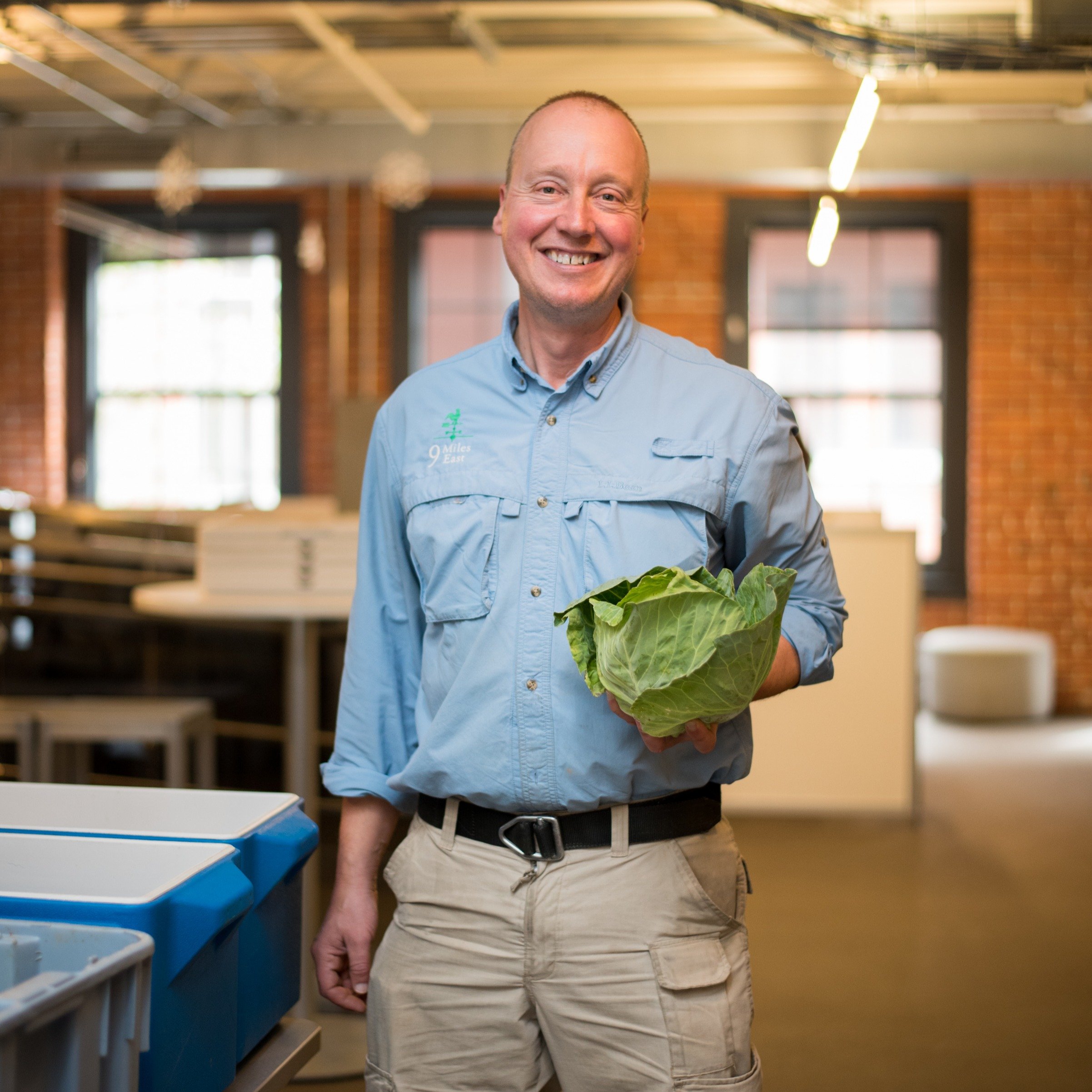Feb 15, 2022
This Financing Platform Is Democratizing Access To Capital For Food, Beverage, & Urban Ag Entrepreneurs

9 Miles East Farm, a farm-to-table operation in Saratoga Springs, NY, who raised $410k on Mainvest
Editor’s note: The Agritecture Partner Network (APN) was launched as an extension of Designer in March 2021, as a means to supercharge our efforts to help connect new and expanding CEA entrepreneurs to premium solutions in a methodical, digital-first, and data-driven way. Mainvest is one of three official APN financing partners. The following information is derived from an interview Agritecture conducted with Isabel Strobing, Director of Marketing Communications at Mainvest.
Kickstarting your urban farm from the ground up is already a challenge. Finding the right investors to back up your dreams and share in the wealth it generates is even more so.
After months of researching and planning for the urban farm of their dreams, entrepreneurs are hungry to finally get started on building. The challenge of landing the capital to enable this can be exhilarating.
With the numerous funding options available, it’s difficult to make the best choice for your business. Isabel Strobing, Director of Marketing Communications at Mainvest, builds on this by adding that “traditionally, small businesses were formed from capital provided by a mix of personal net worth, private investors, and banks. All three of these categories make it increasingly difficult to start a small business unless you have a high net worth and/or a very wealthy network. Oftentimes, this funding can fall short of the actual needs of the business.”
To make matters more complicated, fund-raising costs entrepreneurs a lot of unexpected time, effort, and creative energy, making the search seem never-ending.
Likewise, communities too struggle with the lack of influence they have on the types of businesses that are able to reshape their streets. If only entrepreneurs with the financial backing are able to begin operations, this would limit local economic development and potentially limit the types of businesses that are able to reshape streets. Shouldn’t communities have a say in this?

With the desire for communities to gain more control over their own local economic development and also have a share in the wealth it creates, Mainvest was established.
Mainvest’s founders, Nick, Felix, and Ben, set out in 2018 with the idea of democratizing access to capital and utilizing an investment structure that promoted sustainability, and limited the barriers to becoming a business owner. Their solutions seek to fund businesses in a way that is beneficial to both the business and investor with the added bonus of community engagement.
Strobing shares that “Mainvest was created in order to create alignment between entrepreneurs and those who provide them with capital. A key cornerstone to the Mainvest investment thesis is that when incentives are aligned between stakeholders, it promotes a more sustainable business model and, in return, higher risk-adjusted returns for those who put their capital at risk.”
The investment platform does this “by issuing revenue share notes. Businesses are able to repay loans based on their quarterly revenue, meaning if the business is not yet making revenue, they won't need to start repaying. In turn, investors are offered favorable repayment multiples to account for the risk factors of their investment. The idea is to democratize investment without negatively impacting either party.”
Mainvest is now looking to help democratize access to capital for urban agriculture entrepreneurs.
Strobing highlights how “urban agriculture is the future when it comes to creating community-driven supply chains. Because Mainvest is a community-driven platform, we realized this was an industry in which our mission aligned well. As with any investment platform, we are always looking for the movers and shakers that can help shape the future of an industry and want to be at the forefront of welcoming those ideas by offering them a funding solution built on shared trust with investors who support their mission.”

Gordon Sacks, 9 Miles East Founder and CEO
One of their success stories includes 9 Miles East, a farm-to-table restaurant and meal delivery service out of Saratoga Springs, NY.
Strobing shares that the 9 Miles East team “came to Mainvest in search of funding that would be mutually beneficial for their customers who made their growth possible in the first place. Since raising a total of $410,000 on the platform, 9 Miles East has successfully opened a new restaurant location and expanded operations offering farm-to-table food on a delivery basis to a wide array of enterprise customers.”
Similarly, Brato Brewhouse + Kitchen, a brewpub based in Brighton, MA, “raised over $180,000 on Mainvest to supplement startup costs, and then pivot business models during COVID-19.” After securing capital on Mainvest’s platform, “the team was able to approach larger banks for further funding to support their project.” Founder and Head Chef at Brato Brewhouse + Kitchen, Jonathan Gilman, notes that "crowdfunding models like Mainvest are important in forming symbiotic relationships with an investor where it's not just a handout."
Supercharging efforts to help connect new and expanding CEA entrepreneurs to premium solutions in a methodical, digital-first, and data-driven way, through the Agritecture Partner Network.
“One of the biggest hurdles to starting a CEA business is raising capital. Agritecture’s partnership with Mainvest provides our Designer users and Clients with a new financial instrument to raise capital. ”
On the partnership, Strobing says that “Agritecture provides amazing support to urban agriculture entrepreneurs, and we’re able to further support those entrepreneurs by providing them access to capital.”
From the investor’s perspective, “because revenue generated by urban agriculture can be more predictable and scalable [with Agritecture Designer], the model works well with the revenue sharing note as a flexible, scalable option. Investors should be more drawn to funding urban agriculture businesses for this reason.” Overall, “they’re not only important innovations in the food ecosystem of any given community, but viable investment opportunities.”

